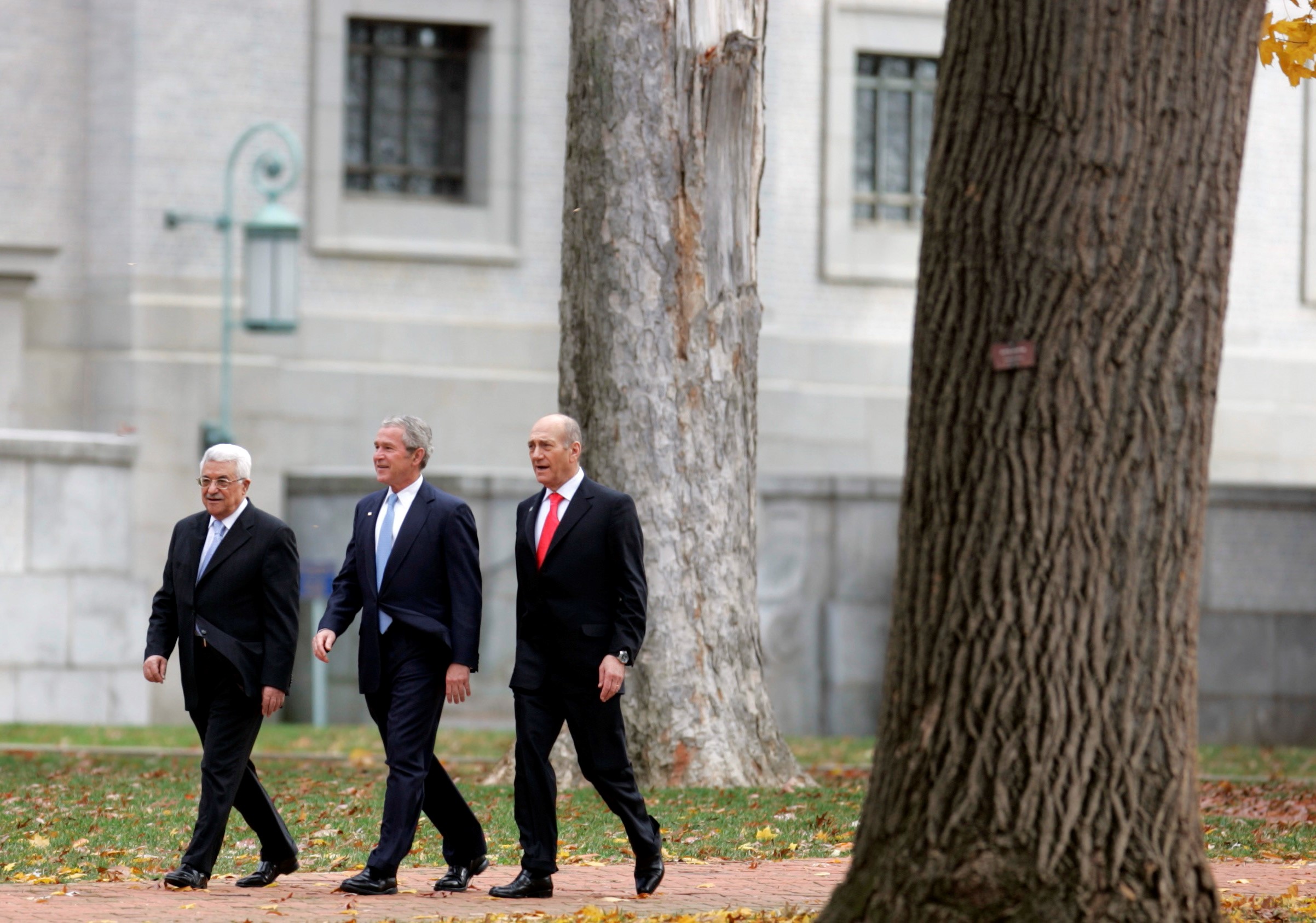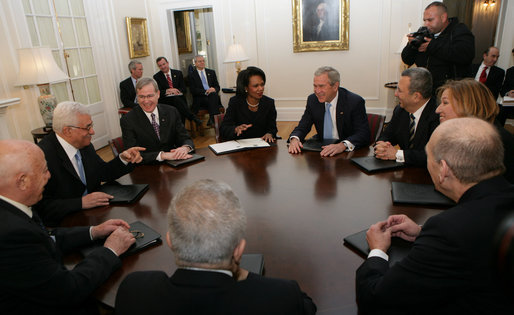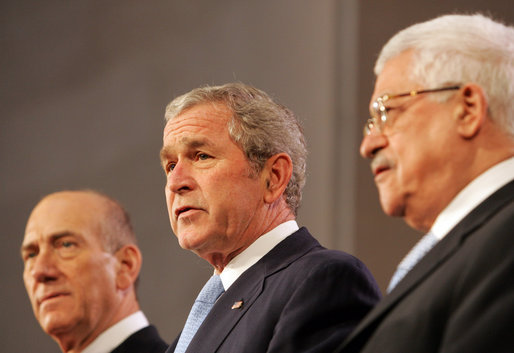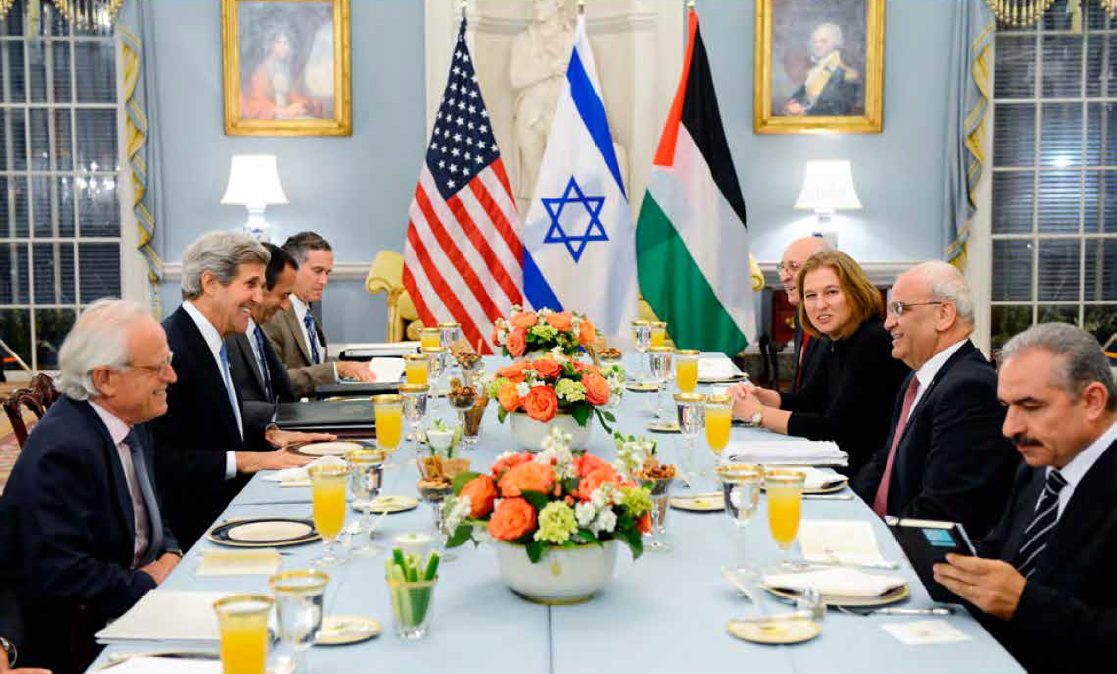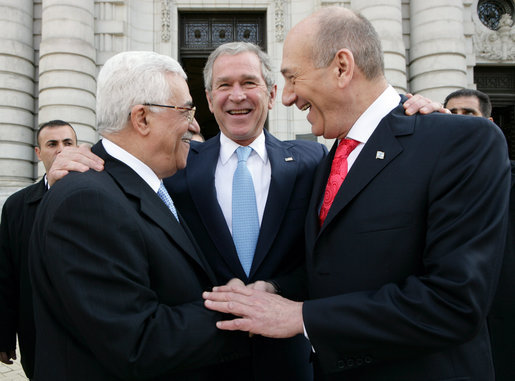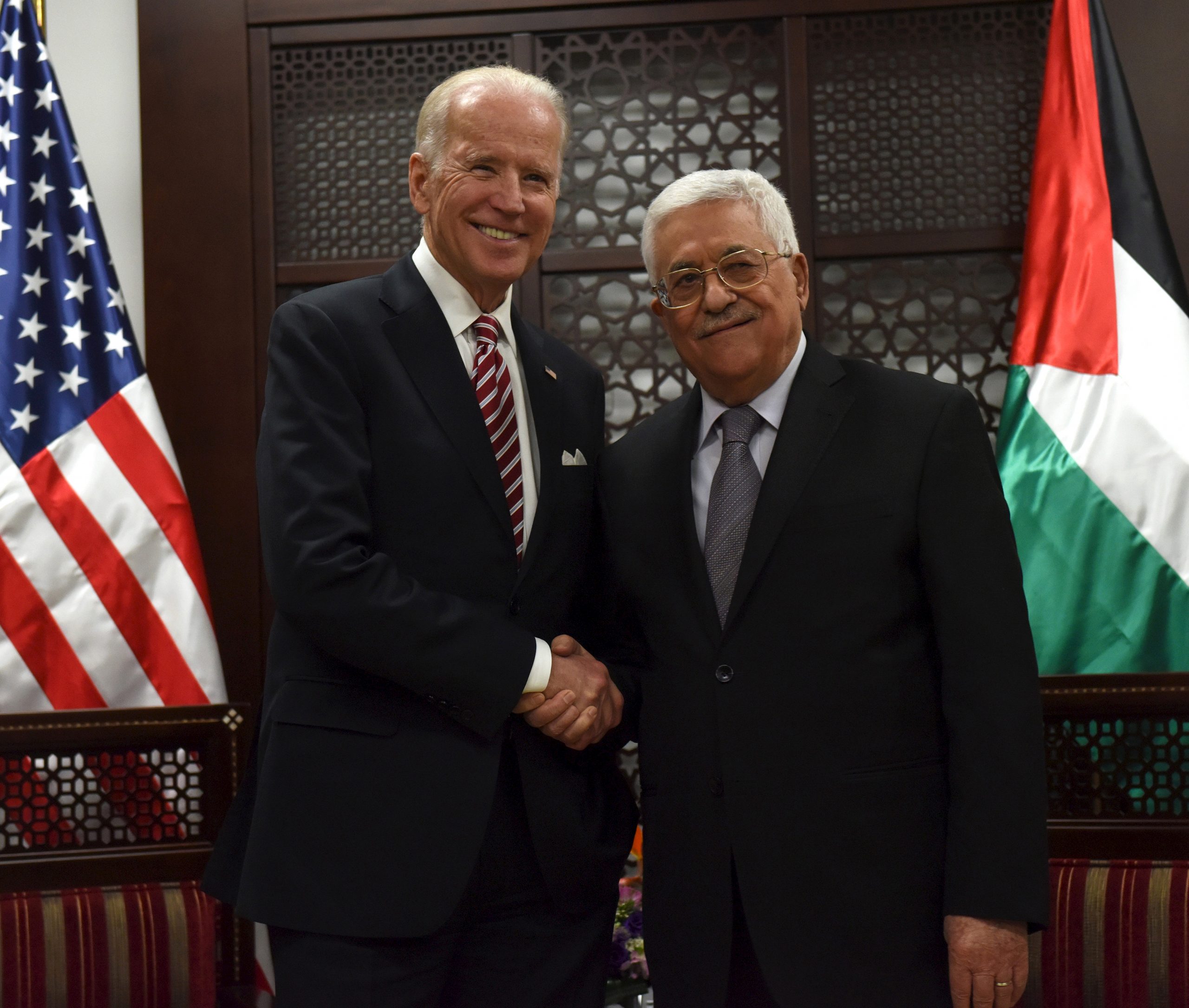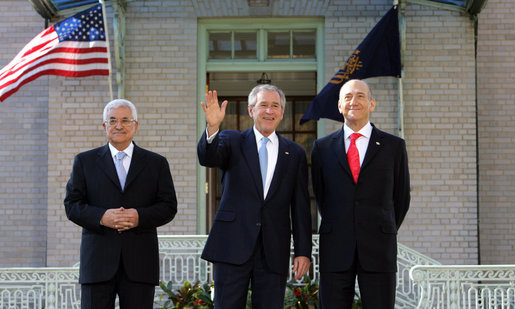Publications
Memorandum No. 212, May 4, 2021
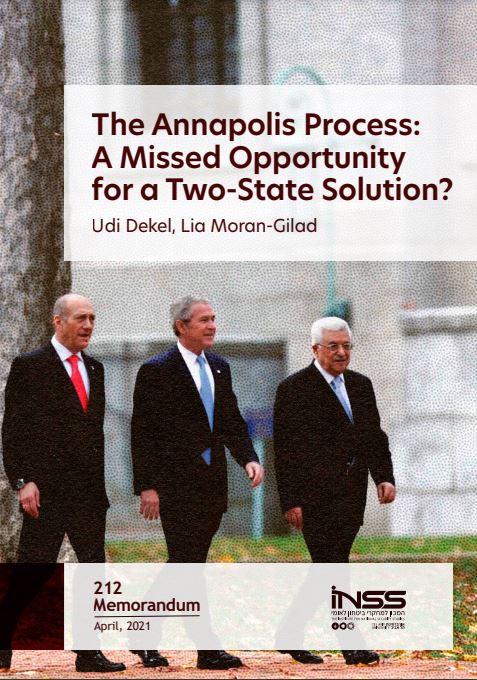
This memorandum describes the context and background of the Annapolis process of 2007—2008 for a permanent status agreement between the State of Israel and the representatives of the Palestinians—the PLO and the Palestinian Authority. The authors, who held key positions in planning, organizing, and conducting the negotiation meetings, describe the interactions and events in public and behind the scenes, in a concerted effort to depict the “golden path” between the competing interests and opposing positions of the parties to reach a stable and viable settlement.
The details presented here and the portrayal of the positions in the negotiation rooms constitute the complex shared and separate reality of Israel and the Palestinians. As one delves into the details and examines the attitudes and positions of the parties and their degree of flexibility, the great weight that the parties attached to their narratives and to the ethos entrenched over the years becomes increasingly apparent, as well as the growing obstacles that prevent a settlement and bridging of the gaps.
To reach an arrangement between Israel and the Palestinians—a fateful decision for the prosperity and fortitude of the State of Israel as Jewish, democratic, secure, and moral—the Palestinian side also needed to agree. In the years since the Annapolis process, the gaps between the two sides have grown and become increasingly entrenched, while chances at achieving a permanent, comprehensive, and stable settlement have receded. The authors conclude here that the Israeli leadership should seriously and honestly consider an agreed-upon separation from the Palestinians as well as take independent steps, without impeding any future diplomatic process. In any future negotiations, the State of Israel should approach the negotiation table having learned from the previous rounds of negotiations, including recognition of both the obstacles and factors that will facilitate progress and the formulation of agreements.
Dr. Lia Moran-Gilad is an expert in security and foreign policy. She holds a PhD in international relations from the Ben Gurion University of the Negev. Lia held several key positions in the Prime Minister’s Office and Defense Ministry, such as chief of staff and senior advisor to the Head of the National Security Council (NSC), and senior advisor to the Head of Crossing Point Authority. Lia was a core member of the Peace Negotiation Team and responsible for data management and coordination of committee work during the Annapolis process. Currently she is a Research Group leader at the Myers-JDC-Brookdale Institute.



